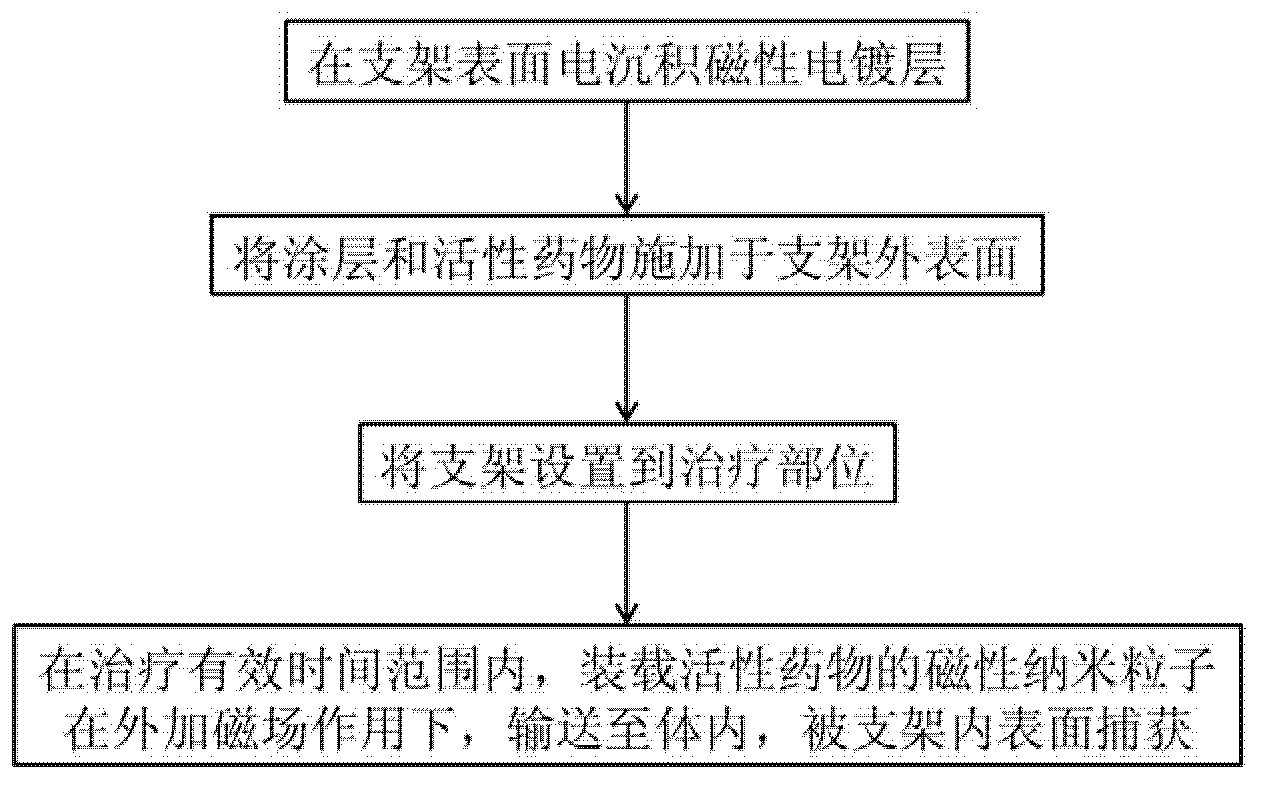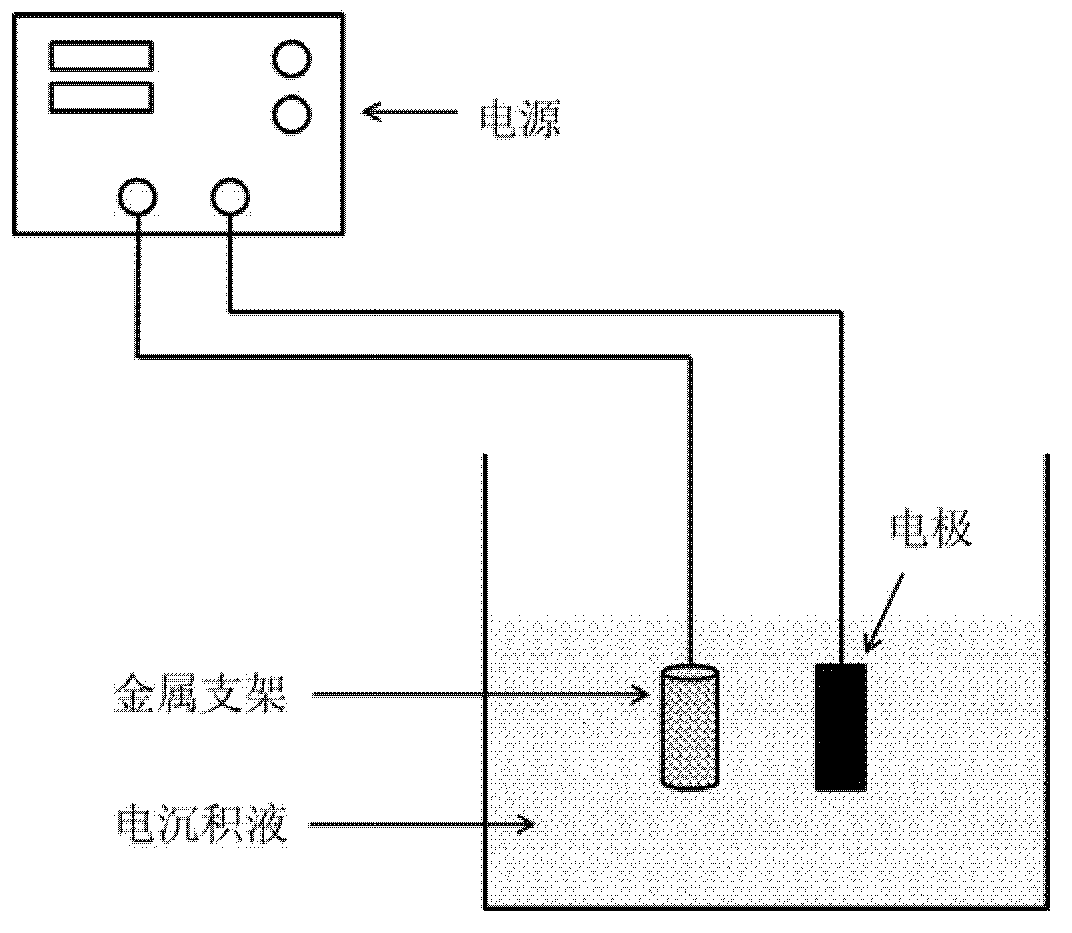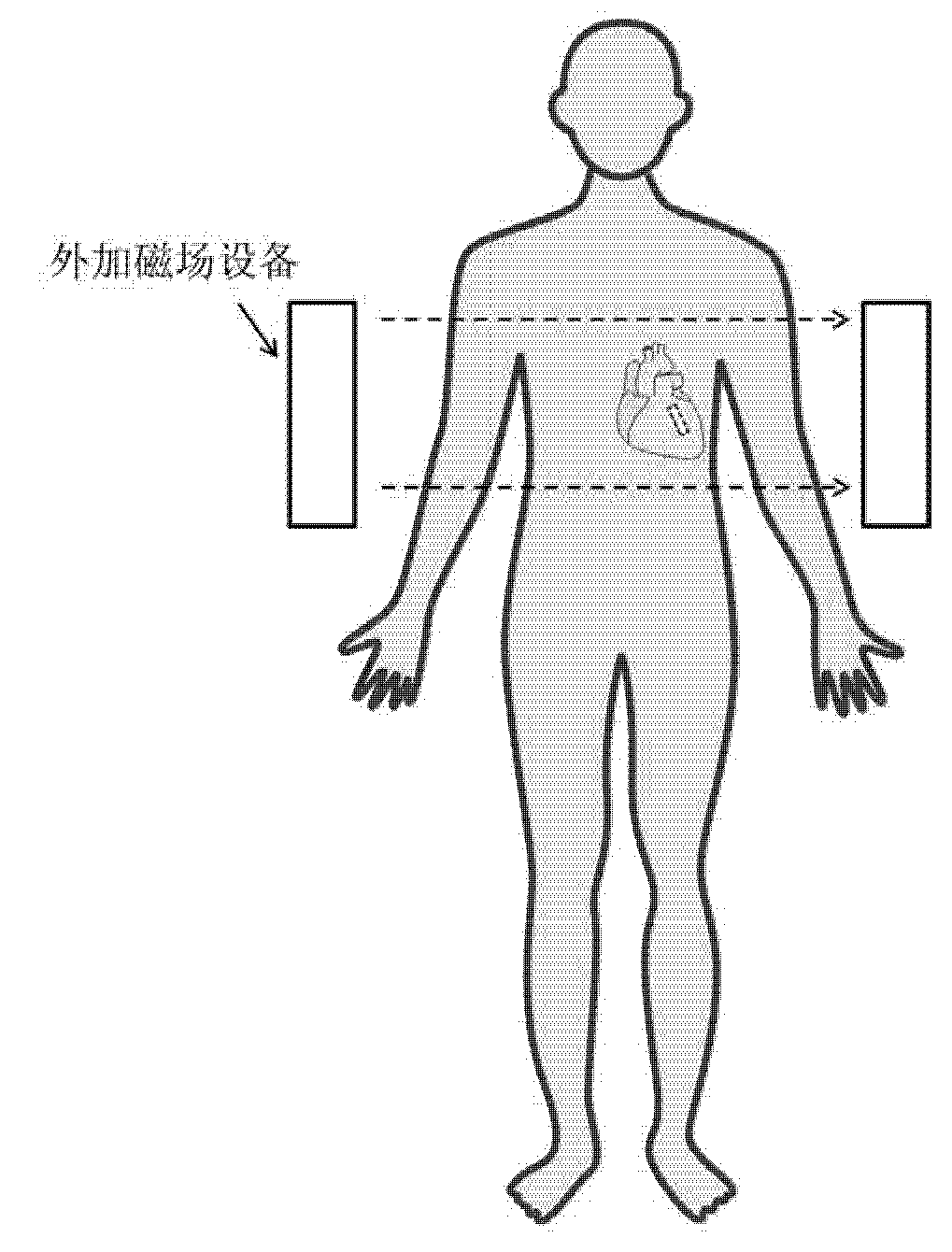Double-side coated drug eluting stent containing magnetic bottom layer and manufacturing method thereof
A technology for eluting stents and active drugs, applied in the field of medical devices, can solve the problems of limited adsorption capacity of magnetic nanoparticles, limited magnetic response ability, and no practical application of magnetic nanoparticles, and achieve the effect of dual-target release
- Summary
- Abstract
- Description
- Claims
- Application Information
AI Technical Summary
Problems solved by technology
Method used
Image
Examples
Embodiment 1
[0047] (1) The stent is made of stainless steel, and a metal stent is prepared by laser cutting technology for use.
[0048] (2) depositing a layer of Co / Ni hard magnetic bottom layer on the inner and outer surfaces of the above-mentioned metal support by an electrodeposition method. The process includes: preparing a composition containing 0.2M NiCl 2 , (0.1-0.206) M CoCl 2 , 0.4M H 3 BO 3 , 0.7M NaCl, and (0.0097-0.0485) M saccharin (Sigma, MO) in 100 ml of electrodeposition solution, pH 3-4, press figure 2 The electrodeposition process was performed as shown, resulting in a metal scaffold with a magnetic underlayer.
[0049] (3) Take 0.1g of poly-D,L-lactic acid (PDLLA, the weight average molecular weight range is 30,000-140,000), add it to 10ml of n-propyl acetate to dissolve at room temperature, prepare a uniform solution, and then add 0.1g of rapamycin The ingredients are mixed evenly, the prepared solution is accurately sprayed onto the outer surface of the above-me...
Embodiment 2
[0056] (1) The stent is made of stainless steel, and a bare metal stent is prepared by laser cutting technology for use.
[0057] (2) depositing a layer of Co / Ni / P hard magnetic bottom layer on the inner and outer surfaces of the above-mentioned metal support by an electrodeposition method, the process includes: preparing a composition containing 0.2M NiCl 2 , (0.1-0.206) M CoCl 2 , (0.047-0.566)M NaH 2 PO 2 , 0.4M H 3 BO 3 , 0.7M NaCl, and (0.0097-0.0485) M saccharin (Sigma, MO) in 100 ml of electrodeposition solution, pH 3-4, press figure 2 The electrodeposition process was performed as shown, resulting in a metal scaffold with a magnetic underlayer.
[0058] (3) Take 0.1g of poly-D,L-lactic acid (PDLLA, the weight average molecular weight range is 30,000-140,000), add it to 10ml of n-propyl acetate to dissolve at room temperature, prepare a uniform solution, and then add 0.1g of rapamycin Mix the ingredients evenly, spray the prepared solution on the outer surface of...
Embodiment 3
[0066] (1) The stent is made of stainless steel, and a bare metal stent is prepared by laser cutting technology for use.
[0067] (2) A layer of Co / Ni soft magnetic bottom layer is deposited on the inner and outer surfaces of the above-mentioned metal support by an electrodeposition method, and the process includes: preparing a composition containing 0.45M NiCl 2 , 0.65M CoCl 2 , 30g / dm -3 H 3 BO 3 and trace amount of saccharin (Sigma, MO) in 100 ml of electrodeposition solution, press figure 2 The electrodeposition process was performed as shown, resulting in a metal scaffold with a magnetic underlayer.
[0068] (3) Take 0.1g of poly-D,L-lactic acid (PDLLA, the weight average molecular weight range is 30,000-140,000), add it to 10ml of n-propyl acetate to dissolve at room temperature, prepare a uniform solution, and then add 0.1g of rapamycin Mix the ingredients evenly, spray the prepared solution on the outer surface of the stent accurately, place the stent in a vacuum...
PUM
 Login to View More
Login to View More Abstract
Description
Claims
Application Information
 Login to View More
Login to View More - R&D
- Intellectual Property
- Life Sciences
- Materials
- Tech Scout
- Unparalleled Data Quality
- Higher Quality Content
- 60% Fewer Hallucinations
Browse by: Latest US Patents, China's latest patents, Technical Efficacy Thesaurus, Application Domain, Technology Topic, Popular Technical Reports.
© 2025 PatSnap. All rights reserved.Legal|Privacy policy|Modern Slavery Act Transparency Statement|Sitemap|About US| Contact US: help@patsnap.com



